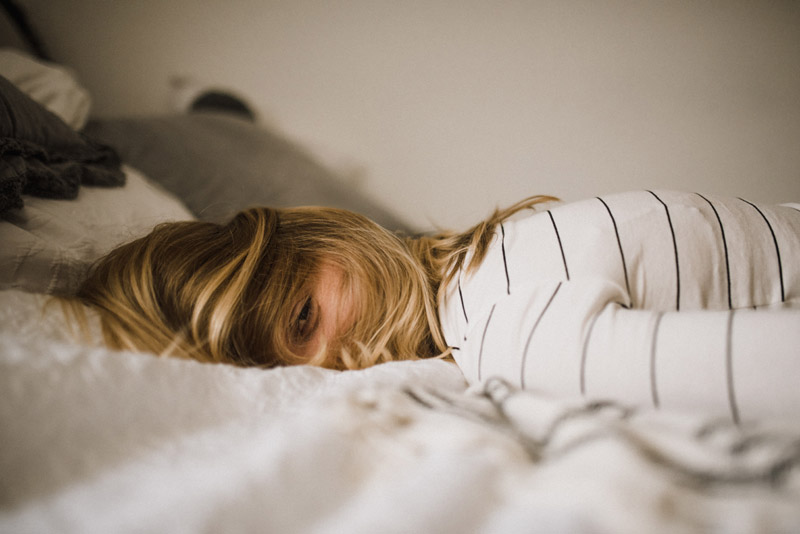 Insomnia
Insomnia
Insomnia tied to greater risk of heart attack, especially in women, study finds
Washington: People who suffer from insomnia were 69% more likely to have a heart attack compared to those who didn’t have the sleep disorder during an average nine years of follow-up, according to new research being presented at the American College of Cardiology’s Annual Scientific Session Together With the World Congress of Cardiology.
In addition, when looking at sleep duration as an objective measure of insomnia, researchers found that people who clocked five or fewer hours of sleep a night had the greatest risk of experiencing a heart attack.
People with both diabetes and insomnia had a twofold likelihood of having a heart attack.
“Insomnia is the most common sleep disorder, but in many ways it’s no longer just an illness, it’s more of a life choice. We just don’t prioritize sleep as much as we should,” said Yomna E. Dean, a medical student at Alexandria University in Alexandria, Egypt, and author of the study. “Our study showed that people with insomnia are more likely to have a heart attack regardless of age, and heart attacks occurred more often in women with insomnia.”
Dean and her research team are hopeful that the current study will help draw attention to the role that sleep disorders may play in heart health.
Insomnia may include trouble falling asleep, staying asleep or getting good quality sleep. Growing in prevalence, insomnia is estimated to affect 10% to 30% of American adults, affecting women more than men.
While studies have linked insomnia to cardiovascular and metabolic diseases, this analysis is the largest to date.
“Based on our pooled data, insomnia should be considered a risk factor for developing a heart attack, and we need to do a better job of educating people about how dangerous [lack of good sleep] can be,” Dean said.
For their analysis, the researchers conducted a systematic review of the literature that yielded 1,226 studies—of these, nine studies originating from the U.S., United Kingdom, Norway, Germany, Taiwan and China were selected for inclusion. All told, data for 1,184,256 adults (43% of whom were women) were assessed. The average age was 52 years and 13% (153,881) had insomnia, which was defined based on ICD diagnostic codes or by the presence of any of these three symptoms: difficulty falling asleep, difficulty staying asleep or waking early and not being able to get back to sleep. People with obstructive sleep apnea were not included. Most patients (96%) did not have a prior history of heart attack. Heart attacks occurred in 2,406 of those who had insomnia and 12,398 of those in the non-insomnia group.
Based on the pooled data, there was a statistically significant association between insomnia and having a heart attack after controlling for other factors that could make a heart attack more likely such as age, gender, comorbidities and smoking. This association between insomnia and heart attack remained significant across all subgroups of patients, including younger and older age (<65 and >65), follow-up duration (more or less than five years), male and female sex, and common comorbidities (diabetes, high blood pressure or cholesterol).
“Not surprisingly, people with insomnia who also had high blood pressure, cholesterol or diabetes had an even higher risk of having a heart attack than those who didn’t,” Dean said. “People with diabetes who also have insomnia had a twofold likelihood of having a heart attack.”
Moreover, people who reported five or less hours of sleep a night were 1.38 and 1.56 times more likely to experience a heart attack compared with those who slept six and seven to eight hours a night, respectively. There was no difference in the risk of heart attack between those getting five or less or nine or more hours of sleep a night, Dean said, which supports findings from previous studies that have shown that getting too little or too much sleep can be harmful to heart health. Dean and her team found that patients who slept six hours had a lower risk of heart attack compared with those who slept nine hours.
In a separate analysis, the researchers sought to determine whether individual insomnia symptoms are associated with a higher risk of heart attack. Disorders of initiating and maintaining sleep—that is, trouble falling or staying asleep—were also tied to a 13% increased likelihood of heart attack compared with people without these symptoms.
Non-restorative sleep and daytime dysfunction, however, were not associated with heart attack, suggesting that those who only complain of feeling unrefreshed upon waking up without any lack of sleep aren’t at an increased risk of heart attacks, Dean said.
Based on the findings, Dean said it is important that people prioritize sleep so they get seven to eight hours of quality sleep a night.
“Practice good sleep hygiene; the room should be dark, quiet and on the cooler side, and put away devices. Do something that is calming to wind down, and if you have tried all these things and still can’t sleep or are sleeping less than five hours, talk with your doctor.”
The study had some limitations, including that most of the studies assessed relied on participants self-reporting on sleep behaviors using questionnaires, although heart attacks were validated by medical reports.
This study was simultaneously published online in Clinical Cardiology at the time of embargo lift.
Support Our Journalism
We cannot do without you.. your contribution supports unbiased journalism
IBNS is not driven by any ism- not wokeism, not racism, not skewed secularism, not hyper right-wing or left liberal ideals, nor by any hardline religious beliefs or hyper nationalism. We want to serve you good old objective news, as they are. We do not judge or preach. We let people decide for themselves. We only try to present factual and well-sourced news.







